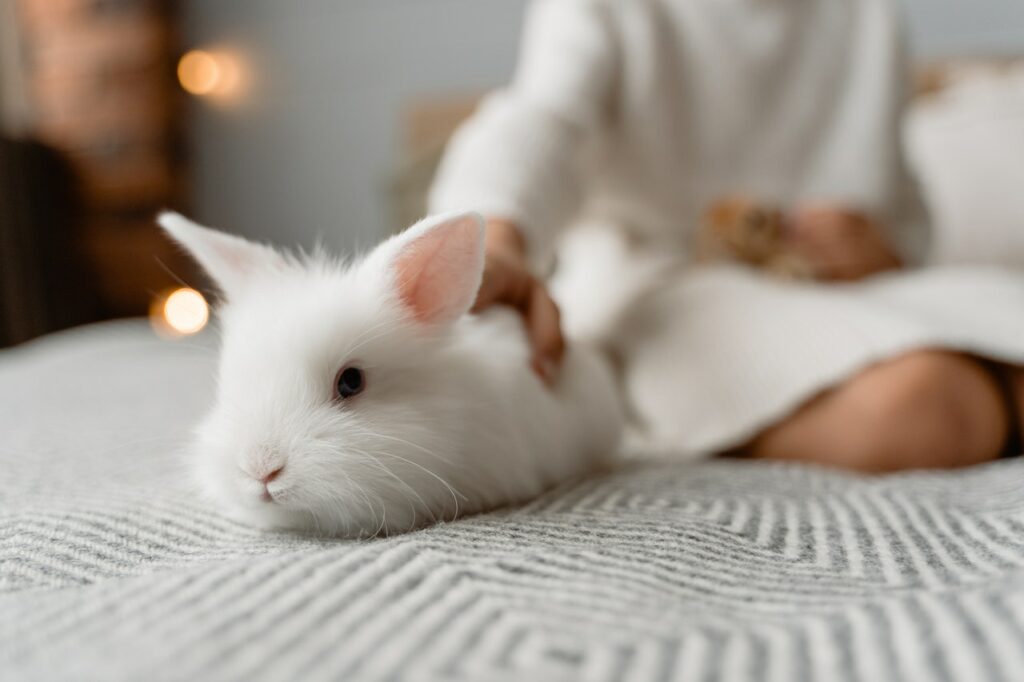11 Things You Need to Know About Rabbit Gestation
If you’re like most people, the words ‘rabbit gestation period’ probably don’t conjure up images of excitement and intrigue. But before you scroll down to the comments section to leave a scathing remark about my lack of journalistic integrity, hear me out. This article is actually pretty interesting. I promise.
So why should you care about rabbit gestation? Well, for one thing, it’s fascinating stuff. Rabbits are pregnant for an average of six weeks and can have anywhere from one to twelve babies (or kittens, as they’re sometimes called). And if that’s not enough to get your interest piqued, consider this: rabbit gestation is also a good indicator of overall rabbit health. So if you’re a proud bunny owner, it’s important to know what to look for during gestation in order to ensure that your furry friend is healthy and happy.
What is Rabbit Gestation?
Gestation, or pregnancy, is the time during which a female rabbit carries her young in her uterus. The gestation period for a rabbit is about 31 days, give or take a few days. Most rabbits will have between one and twelve babies (kittens), though the average litter size is six.
So what should you look for during gestation? Well, first and foremost, you should make sure your rabbit is getting enough food and water. She’ll need all the energy she can get to support her growing litter. You should also keep an eye out for signs of illness or distress. If your rabbit seems to be in pain, has a fever, or is losing weight, she may be experiencing complications and you should take her to the vet immediately.
How Long is a Rabbit Pregnant For and How Many Babies Will She Have on Average?
The gestation period for a rabbit is about 31 days, give or take a few days. Rabbits are pregnant for about six weeks, give or take a week. Most rabbits will have between one and twelve babies (kittens), though the average litter size is six.
What are the Signs of a Healthy Rabbit Gestation Period?
A healthy rabbit gestation period is typically between 28 and 33 days long, though it can vary from breed to breed. It’s important for owners to be aware of the signs that indicate a healthy pregnancy in order to ensure that their rabbits are receiving the best possible care.
The earliest indication of a healthy pregnancy is an increase in appetite, as well as an increase in energy and activity levels. Rabbits will often become more active as they reach the later stages of pregnancy—they may even start digging or rearranging their cage. Their weight should also begin to noticeably increase as the pregnancy progresses.
Other early signs include changes in fur texture— the fur may become softer and slightly fluffier than usual. The abdomen should begin to round out and may become quite large by the end of the gestation period. During this time, female rabbits will also produce wax-like secretions called “pink”; this is caused by an increased amount of hormones entering their system and will usually occur 7-14 days into the pregnancy.
False Pregnancies
It’s important to note that rabbits can also experience false pregnancies, where some or all of these symptoms appear but no litter is produced due to hormonal imbalances. False pregnancies tend to have shorter durations than actual pregnancies, so if gestation lasts longer than 33 days it’s likely that a litter has been conceived.
Rabbits should receive regular veterinary check-ups throughout the gestation period. Common tests like blood analyses or ultrasounds can help detect any potential health problems before they become more serious issues for mother and offspring alike. Fatigue or other physical changes that persist beyond several weeks could indicate a problem with the pregnancy, so owners should contact their vet immediately if they have any concerns about their rabbit’s health during her gestation period.
By being aware of these common signs and taking precautionary measures such as visiting their vet regularly, owners can ensure that their rabbits enjoy a happy and healthy pregnancy free from complications!
A healthy gestation will include the following signs:
– An increase in appetite and water intake
– Increased grooming habits
– A softening of the abdomen as the fetuses grow
– Nesting behaviour, such as collecting hay or fur to line a nest box.
What Happens After the Babies are Born?
Once the gestation period is over, the mother rabbit will give birth to her litter. The kits should be left with their mother in a warm, dark area until they are weaned. This usually takes place between four and six weeks after they’re born.
The kits should also receive proper nutrition during this time. They get most of their nutrients from their mother’s milk, but they should also be offered hay and pellets to help them grow and develop. The kits should also get used to being handled in order to make them more comfortable with humans as they grow up.
Rabbit gestation is an incredibly important part of their life cycle. So it’s essential for owners to be familiar with the signs and symptoms of pregnancy. With the right care and attention during gestation, rabbit owners can ensure that their pets experience a safe, healthy pregnancy. And hopefully enjoy another litter of kits in the future!
Good luck!
If you have a rabbit, it’s important to get insurance for them. Just like with any other pet, there are many things that can go wrong during their gestation period. By having insurance, you’ll be able to provide your rabbit with the best possible care without worrying about the cost.
Contact your local insurance company today to learn more about their policies and how you can get your rabbit insured!










